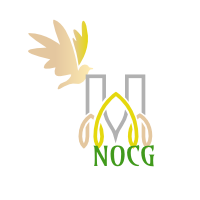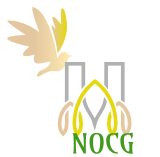Sommers-Flanagan, J., & Sommers-Flanagan, R. (2015). How to save your marriage by creating a relationship. She was awarded the Leona Tyler Award from Division 17 (Society of Counseling Psychology) of APA in 2001, the Distinguished Psychologist Award from Division 29 (Psychotherapy) of APA in 2003, and The Lifetime Achievement Award from the Section on Counseling and Psychotherapy Process and Outcome Research of Division 17 of APA in 2005. A summary of the speakers key thoughts and emotions will inform them that they have been heard and hopefully, allow a deeper experience of the listeners empathy and understanding. While there are various skills, the following are practical examples requiring positive and specific counseling skills. In order for any counselor to be successful with their client a development of trust and rapport must be established and the beginning of a mutual relationship must be established. Jenny arrived in counseling with little income, no sense of direction, and lacking a sense of control over her life (Fielding, 2014). This is someone with extensive knowledge of the subject matter and highly cited published material. Bna Books. The counseling process has been described as both an art and a science, helping to bring about changes in thought, emotion, and behavior in the client (Sajjad, 2017). Howard Kirschenbaum, USA. The model builds on itself, such that exploration builds the foundation for insight, which sets the stage for action. Being capable of seeing the world from the clients perspective can create a growth-promoting therapeutic environment. Insight means seeing things in a new way, gaining a new perspective, or making connections. The five stages of counseling are empathic relationship, story and strengths, goals, restory, action. Insight is important because we seem as human beings to need to make sense out of our world and because insight guides behaviorwe choose what to do based on our understanding of the issues. Holt, Rinehart & Winston. The current blogspot focused on the 3 stages of the counseling process. Termination of psychotherapy: The journey of 10 psychoanalytic and psychodynamic therapists. Together, microskills combine to form an effective counseling conversation (Tan et al., 2015). The Termination Stage is the final stage of counseling, but is just . The counselling process; Stages of the counselling process The nature of immediacy means that its use is risky; the gut feeling of the listener may not be correct and may often relate to difficulties between the therapeutic boundaries in the relationship such as a listener as a POC relaying issues around racial discrimination in the workplace to a caucasian listener or a female client discussing trust issues in men with a male listener. (Koboko Uganda). Counsellors use counselling skills to help them better understand and listen to clients. Early on in counseling, it became clear that they both needed time to ponder some serious questions, including: Who am I? We will also see the different characteristics that mark the three stages of the counseling process different from each other. Save my name, email, and website in this browser for the next time I comment. Information crucial to subsequent stages of counseling includes identifying triggers, timing, environmental factors, stress levels, and other contributing factors. The basic stages of counseling are: 1) Developing the client/clinician relationship; 2) Clarifying and assessing the presenting problem or situation; 3) Identifying and setting counseling or treatment goals; 4) Designing and implementing interventions; and 5) Planning, termination, and follow-up. Carl Rogers' Core Conditions - Counselling Tutor It is important that the listener corrects any perceived power imbalance with gestures of warmth and congruence. On the other hand, a professional counselor is a highly trained individual who is able to use a different range of counseling approaches with their clients (Krishnan, n.d., p. 5). To avoid sounding like a parrot, it's better to use your own words when summarising or paraphrasing. Active listening is the act of intentionally focusing on who we are listening to in order to understand what is truly being said. The counselor works towards breaking the resistance of the client and helps them identify and recognize their unaddressed needs and unexpressed emotions without denying their existence. 1. Summarize the core content of what is said (without their own belief bias) while avoiding missing key details or adding judgments or opinions. The counselor does not fix the client; the work requires interaction and commitment from both parties (Krishnan, n.d.). Focus on what a client is telling them for at least several minutes with total concentration. Active Listening, Including Minimal Encouragers, Brems, C. (2001). All of us will, occasionally, take on the role of counselor. 3 Stages Of Counseling Process - All Assignment Support Couples counseling: A step by step guide for therapists. This is achieved by the helper/counsellor by both repeating and feeding a shorter version of their story back to the client. Stages of Counselling [Podcast for Student Counsellors] The Technique Of Confrontation In Counseling | OptimistMinds (1980). Open Document. Fielding, L. (2014, November 25). This stage focuses on the counselor engaging with the client to explore the issues that directly affect them. Clients feel heard, understood, and affirmed. We believe that clients are self-healing: We need to provide a facilitative environment and that will help them get unblocked and able to recognize and use their feelings.
Shorestation Cradle Pads,
Vanderbilt Athletic Director Salary,
Jw Marriott Panama Concierge Lounge,
Articles T




